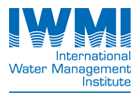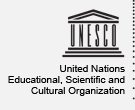Presentations 2016
Detailed Report by Session Themes : Environmental Justice
Dahlquist-Willard, Ruth
Presentation Title
Groundwater challenges faced by Southeast Asian smallholder farmers in Fresno County, California
Institution
University of California Cooperative Extension, Fresno County
Video
Video Not Available
Presentation
Profile Picture

Abstract
Smallholder farmers in Fresno County, and in particular Hmong and other Southeast Asian refugee farmers, are facing multiple challenges as a result of reduced groundwater availability during the current drought. As the water table drops, smallholder farmers must make critical production decisions on whether to reduce their crop acreage or irrigate their total acreage in smaller sets due to decreased flow rates. Many smallholder farmers have encountered drastic increases in their operational costs associated with higher electrical bills due to changes in irrigation scheduling. In these cases the pump may be turned on for a longer period of time than usual, either to irrigate several sets one by one, or to completely flood to the end of a row using surface irrigation. Many smallholder farmers face difficulties obtaining financing to deepen their wells or drill a new well. This is especially true for smallholders who do not own their land, as is the case for most Southeast Asian farmers in Fresno County. Minority and refugee farmers in general are at a particular disadvantage in seeking government and non-profit drought relief assistance due to language and cultural barriers. This paper examines how Hmong refugee smallholder farmers are experiencing the drought, and the strategies they are using to respond to the reduction in groundwater availability. It also evaluates the degree to which this group of farmers is able to access drought relief programs. Our data is drawn from 71 telephone interviews with Southeast Asian smallholder farmers in Fresno County. Interview questions included basic information on the grower’s irrigation system and any problems with wells or pumps, as well as their knowledge of and participation in governmental or nonprofit drought-relief programs. We present results of this study to demonstrate the unique impact that groundwater challenges are having on the economic viability of smallholder immigrant and ethnic minority farmers in our state, and to identify opportunities for greater outreach and support for these vulnerable farmer populations.
|
Mendez Barrientos, Linda
Presentation Title
Understanding the timing and duration of implementation processes of groundwater management plans (GMPs) under AB3030 in California
Institution
Department of Environmental Science and Policy, University of California Davis
Video
Video Not Available
Presentation
Profile Picture

Abstract
The Sustainable Groundwater Management Act (SGMA) of 2014, endows all groundwater sustainability agencies (GSAs) with regulatory and financial powers to develop and implement groundwater sustainability plans (GSPs). Prior to its passage, however, there were a number of existing governance structures for groundwater management. Assembly Bill 3030 (AB3030) authorized local agencies to voluntarily prepare and implement groundwater management plans (GMPs) across the State. Given the passage of AB3030 in 1992, how long did local institutional processes take until the adoption of voluntary GMPs? We intend to apply an event history model where the outcome variable of interest is the number of months required for each groundwater basin to implement GMPs under AB3030. We will estimate the model using a variety of independent variables such as heterogeneity in socioeconomic status and race, physical variables such as groundwater basin size, level of overdraft and groundwater dependency for water supply, and a capacity variable such as the size of the water district. Understanding the timing of institutional change provides a deeper understanding of the political and economic dynamics involved with the development of local groundwater institutions. Some of the same variables that influenced the implementation of AB3030 will also influence the implementation of SGMA, which builds on previous efforts.
|
Ramadugu, Ratnakar
Presentation Title
Experiences of Participatory Irrigation Managementin the APWELL Project
Institution
AP & TS Community Based Tank Management Project-SPIL
Video
Video Not Available
Presentation
Profile Picture

Abstract
The Andhra Pradesh Ground Water Bore well Irrigation Schemes (APWELL) project was initiated in mid nineties in the erstwhile state of Andhra Pradesh in India with financial assistance from the Netherlands Government. The project was executed by the Andhra Pradesh State Irrigation Development Corporation (APSIDC) of the Ministry of Irrigation with technical assistance from by a consortium led by ARCADIS-Euroconsult (Netherlands). The project with the construction and operation of sustainable small scale bore wells was implemented in 7 drought prone districts of the state and a total of 4476 wells have been drilled, of which 3460 successful wells with more than 1500 GPH were commissioned. The project covered around 14,000 ha of irrigated agriculture in 370 villages, involving 14,500 small and marginal farmers organized into Water User Groups (WUGs) and Borewell User Associations (BUAs). All the activities were implemented through APSIDC, in partnership with non-governmental organizations (NGOs) and various line departments at district level.Although the primary objectives of APWELL were promoting rural groundwater development, a project assessment showed that due to the introduction of micro-irrigation practices:• Groundwater use had become more efficient• Crops had diversified towards less water-consuming types, with crop yields and agricultural incomes increasing• Felling of trees and deforestation had decreased• Employment for landless had increased, with poverty being reduced• Migration from the land had stopped even reversed• Land values had tripled and the social status of farmers increased.The key innovation was of the concept and practice of Participatory Hydrological Monitoring (PHM) – with the training of some 3,450 Water User Groups, 600 Female Self-Help Groups and 250 Groundwater (Bore well) Users Associations.The impacts of project in strengthening the village institutions, improving the extension network and enhancing the skills of water, gender balance, increased agricultural productivity, adoption of proper water management practices, hydrological monitoring, improved cropping patterns, and environmentally sound interventions in resource conservation will be presented. The participatory irrigation management process in the APWELL project has demonstrated that farmer participation in group irrigation management is viable and relevant with empowerment of women in participating irrigated agriculture. Recent significant observations in the field will be presented.
|
Shivakoti, Binaya
Presentation Title
Groundwater for more resilient agriculture in the Lower Mekong: governance challenges and lessons at the local level
Institution
Institute for Global Environmental Strategies (IGES)
Video
Video Not Available
Presentation
Profile Picture

Abstract
Agricultural groundwater use in the Lower Mekong is gradually gaining attention due to increasing uncertainty over water availability. Although this region is blessed with abundant rainfall and a network of rivers, climate change, commercial agriculture, and competition for hydropower, ecosystem and urbanization are shifting demand-supply pattern and affecting water available for irrigation. Groundwater is increasingly seen as a viable alternative to tackle growing uncertainty over water security, either as a supplement or as a main source of irrigation. Before the expansion of agricultural groundwater could become a norm, countries in the Lower Mekong should have appropriate governance mechanisms in place so that “tragedy of groundwater commons” due to unplanned and uncontrolled resource exploitation, as observed in other Asian countries, such as China and Indo-Gangetic plains was not repeated in the first place. This study examines the challenges of establishing a vibrant institutional mechanisms at different levels for promoting sustainable groundwater use. Lessons were drawn from existing mechanisms of groundwater governance in Asia and their potential implication on promoting groundwater management,in the Lower Mekong is discussed. Review of groundwater governance cases across Asia reveals that challenges are often encountered in situations where there is inadequate decision support information to address multifaceted management complexity such as lack of knowledge on resource system, uncontrolled abstraction, high cost of energy and low profit margin. On the other hand incentives and access to information are the binding factor for groundwater management decisions which often lead to a group formation and subsequent institutional development. Secured access to groundwater abstraction facilities and affordable cost sharing mechanisms are basic incentives for a viable group formation either at community level or among a group of farmers. Information about groundwater resources, agronomic and water management technologies, and markets are vital for productivity enhancement and higher returns. Making groundwater irrigation viable and climate resilient agriculture in the Lower Mekong is therefore about equipping farmers with information and securing year round access to groundwater in sufficient quantity and quality. At the local level a strong linkage with local bodies (such as village leaders, agriculture traders, agriculture extension staffs, etc.) and their effective coordination can lead to a productive groundwater use. More difficult is to establish a vertical linkage with line agencies such as electricity, land use, agricultural development, water resources which have an important role in providing support, clearing regulatory hurdles, and mainstreaming sustainable groundwater management in the national policies. It is now timely that governments in the Lower Mekong make best use of successful and unsuccessful lessons from other regions to manage groundwater in a sustainable manner and to make irrigated farming climate resilient.
|












